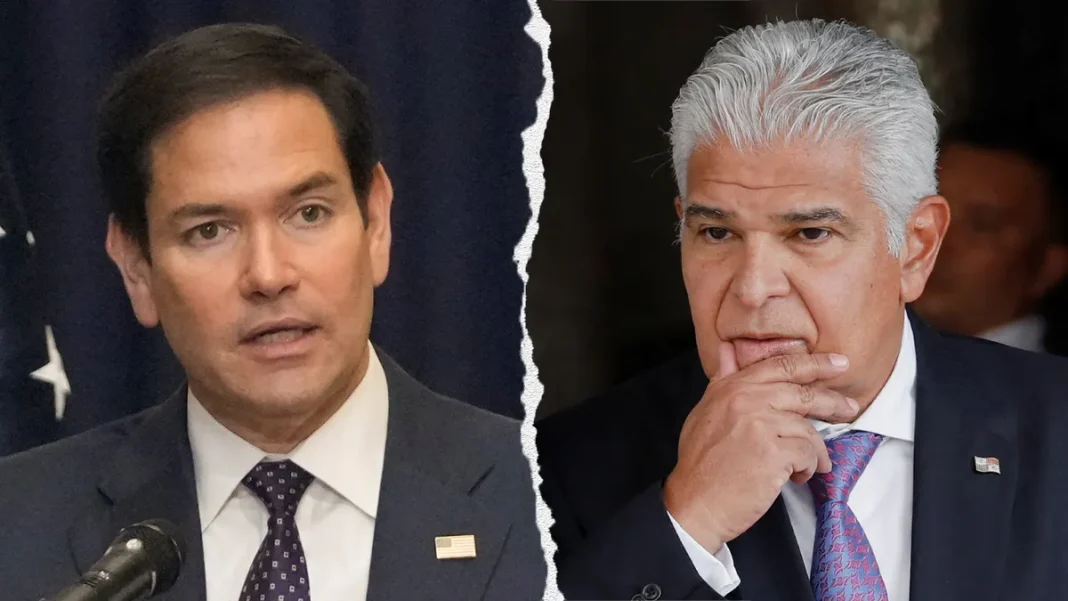In a significant geopolitical move, Panama has officially withdrawn from China’s Belt and Road Initiative (BRI), marking the end of a deal that had been in place since 2017. The country’s President, Jose Raul Mulino, announced that Panama will not be renewing its Memorandum of Understanding (MoU) with China. This decision follows mounting pressure from the United States, including threats made by former President Donald Trump, regarding control over the Panama Canal. By ending the deal, Panama is making it clear that its sovereignty over the canal, one of the most important and strategically vital waterways in the world, remains non-negotiable.
In This Aricle:
Panama’s Sovereignty Over the Canal: A Red Line
The Panama Canal, which was handed over to Panama by the United States in 1999 after decades of American control, serves as a vital trade route for global commerce. In recent years, however, the canal has become a point of tension, especially in light of China’s growing economic influence. Despite China’s increasing involvement in global infrastructure projects, including its ambitious Belt and Road Initiative, Panama has sought to distance itself from Beijing’s influence, particularly regarding the canal.
President Mulino, who has been under pressure from both China and the United States, asserted that Panama will not entertain any discussions regarding the canal’s sovereignty. “Sovereignty over the canal is not in question,” Mulino stated firmly, rejecting the notion that any outside powers could exert control over such a critical asset. The withdrawal from the BRI is viewed as Panama’s response to increasing international pressure to choose sides in the growing geopolitical rivalry between the US and China.
The US Factor: Trump’s Threats and Rubio’s Warnings
The decision to sever ties with China comes after repeated warnings from the United States, particularly under the Trump administration. Former President Trump has expressed a desire to take control of the Panama Canal, a stance that has raised alarms in Panama. In several public statements, Trump indicated that China’s involvement with the canal was a violation of the US-Panama treaty and that the US would act if Panama did not sever its ties with China.
Trump went as far as to suggest that the United States could seize the canal, stating that China was “running the Panama Canal.” Trump’s provocative rhetoric about reclaiming the canal from Panama has stirred political and diplomatic tensions between the US and the Latin American nation. In one notable comment, he described the original agreement giving Panama control over the canal as a “foolish” decision.
In early February 2025, US Secretary of State Marco Rubio delivered a stern message to Panama’s President during a visit to Panama City. Rubio, who represented Trump’s administration, warned Panama that the US would “take measures necessary” if the country did not immediately distance itself from China. According to Rubio, China’s growing presence in the region posed a direct threat to the security of the Panama Canal and violated the neutrality of the waterway under the terms of the US-Panama treaty.
Panama’s Response: A Strategic Shift Toward Sovereignty
Despite external pressure, Panama’s government has remained resolute in its stance. President Mulino emphasized that there is no immediate threat to Panama’s control over the canal, asserting that the country’s neutrality treaty remains intact. “We’ll study the possibility of terminating it early,” Mulino said regarding the BRI deal, but he stressed that Panama’s commitment to sovereignty is unshakable.
The Belt and Road Initiative, launched by China in 2013, aims to enhance global trade and infrastructure connectivity, but it has also been viewed by many as a tool for China to exert influence over developing nations. Panama’s initial participation in the BRI was seen as an effort to secure infrastructure investments, particularly in the form of loans for development projects. However, the fallout from China’s increasing geopolitical assertiveness, coupled with concerns about Chinese influence over strategic assets like the Panama Canal, has led Panama to rethink its position.
The Future of Panama-China Relations
While Panama’s decision to withdraw from the Belt and Road Initiative marks a significant shift in its foreign policy, the country has not completely closed the door to China. Panama’s government has indicated that it will continue to maintain diplomatic and economic ties with China, but without the formal commitment to the Belt and Road Initiative.
The withdrawal also signals Panama’s intent to navigate a delicate balancing act between its historical ties with the United States and its growing economic relationships with countries in the Asia-Pacific region. As a small nation with a powerful political asset in the form of the Panama Canal, Panama has long been at the crossroads of international politics, and its latest move highlights the ongoing global struggle for influence in the region.
A Message to the US: No Compromise on Sovereignty
Ultimately, Panama’s decision to end its involvement with the BRI is not just about distancing itself from China; it is a clear message to the United States that Panama’s sovereignty over the Panama Canal is not up for debate. While the US may have used its influence to pressure Panama to sever ties with China, it is evident that Panama values its independence and control over one of the world’s most strategically important waterways.
The end of Panama’s participation in the Belt and Road Initiative marks a new chapter in the country’s foreign policy, one that prioritizes national sovereignty and independence. Whether this move will influence other nations in the region to follow suit remains to be seen, but it is clear that Panama is positioning itself as a key player in the geopolitical tug-of-war between the US and China.



